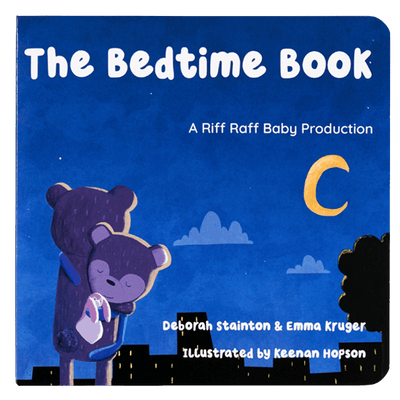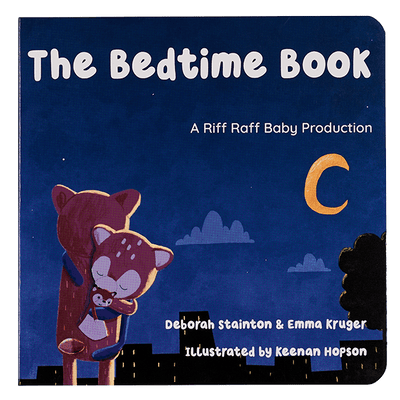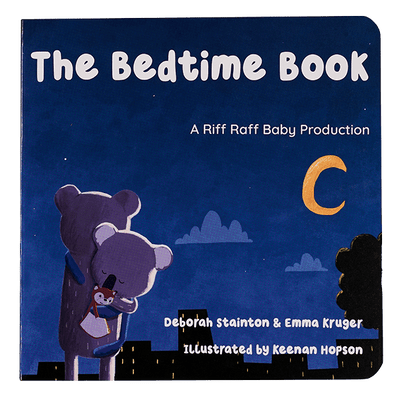Changes To Your Toddlers Sleep
By Tara Mitchell (The Gentle Sleep Specialist)
The one to two year mark sees a lot of changes for your little ones. There are a few little things that we want to keep an eye on during this time. One is the shift from 2-1 naps, the next is the beginning of toddler pushback at bedtime and the other is possible regressions.
Let’s start by becoming familiar with their awake times at this age.
12 - 16 months if on two naps: You would typically need to ensure their day starts by 6:30 am if they aren't already awake to fit both in. Around 3h - 3.5h before nap one 3h 45m - 4 hours before nap two. Approximately 3.5 – 4 hours before bedtime depending on their age.
Nap one should remain more than one hour. Nap two can be a short 20-40 min nap. Bedtime shouldn't push past 7:30pm.
14 - 24 months if on one nap: Your little one’s awake time may now be closer to 5 hours. Closer to two years of age it generally extends to around 5.5 hours awake time give or take. We would expect their one nap a day to be around 1h 20 or longer.
Let’s talk about the shift from 2-1 nap.
Here are my key tips for this transition that typically takes place around 15 – 19 months.
Firstly, keeping the second nap for as long as possible is important. The older our little ones are when transitioning naps, typically the better they cope. This is especially important when it comes to moving to only one nap. This may mean you have to trial more awake time before nap two, use the car or pram for a little while or last resort cap nap one to 1.5 hours so that you can keep nap 2 for a little longer. The second nap of the day can even just be a short 15 – 20 min nap.
When you do transition it can take a couple of months, it is completely okay to dice between 1-2 naps. We just don’t want bedtime pushing much past 7:30pm.
When you do make the move, keeping their one nap back to at least 10:30 – 11 am is important to make sure there isn’t a huge stretch to bedtime. Don’t be afraid to use a bedtime as early as 5:30/6 pm if your little one will take it.
From around two years of age your little ones may start to be hesitant around going to bed. Their imagination really begins to kick in at this age so it is often age appropriate to need their door open ¼ and to use a dim night light.
Keep your boundaries in a kind and predictable way.
Our toddlers thrive off of boundaries and predictability. It is ok if you hold a boundary in the lead up to bedtime and equally, they are allowed to have their big feelings without being punished or shamed. So they can have their big feelings and you can hold your boundaries. Be mindful of lots of small requests as this is what can spiral into chaotic bedtimes. Remember connection, playful and paced bedtime routines make the world of difference.
Managing sleep regressions
Try to think of it as "progressions" - these are times in your little one's lives where they are learning new skills. Regressions shouldn't be derailing sleep all the time and if they are, that’s where we can help!
If your little one awakens and plays during the night, this can be a big developmental leap where they are practicing a new skill at night. As long as they're happy, don't jump in to help - just leave them be. However, do check that they're not due for more awake time before bed.
If you feel you have hit a regression here’s what to do next
- Are they ready for more awake time? Adjust their awake time if necessary.
- Is it that their multitude of requests have meant they are now in control of bedtime and our boundaries need a little push back into play. Remember whenever it comes to bedtimes for toddlers we first need to ensure we offer connection, a full cup for our little ones and kind boundaries.
- Have they just dropped a nap and now they're going to bed more tired? This could mean they are getting sleepy on milk or stories before bed for example and then getting a second wind. This isn’t good for smooth settles. Sleep pressure before nap and bedtimes is really important. Screen time is a nightmare when it comes to bedtimes and sleep. Try to have no screens within 3 hours of bedtime and minimal throughout the day.
- It is important to stay consistent, try not to panic and bring in new means of getting them to sleep. You can up the support but if you start co sleeping or lying there when they go to sleep it may become a lasting habit.
- Offer support but not to sleep, just to reassure them to see if they will do the rest.
- Are they just practicing a skill? It may just be an "age and stage" thing and It will usually pass after 2 weeks.
Toddler bedtimes can be a really enjoyable time. Time that you can create memories together, to play, to enjoy one another. They don’t have to be lengthy battles. Remember our lives are so fast paced and busy, it really does rob us of so much. Let’s encourage bedtime to become a time of connection and slowing things down for ourselves too.
Feel free to reach out.
Tara x
info@gentlesleep.com.au
0404987982
www.gentlesleep.com.au

























